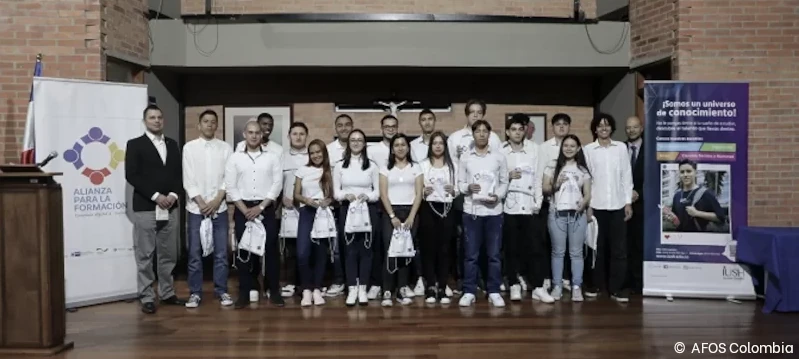Training Programme for Technical Assistants in Software Programming
Together with local business enterprises and educational institutions, we promote the development of skills in the field of software development in Colombia. In Antioquia, 41 young people now already have the opportunity to participate in the new dual training programmes.

Together with our local partner organisation – the Institución Universitaria Salazar y Herrera (IUSH) – the official opening of the new training programme for “Technical Assistants in Software Programming” took place.

Future-oriented Companies promote our Programmes
Also present were the companies Softline, Softnet, Cobelén and Sistemas Sentry, which are now introducing the dual training model in their companies. With their commitment, these future-oriented successful companies promote the implementation of qualified and recognised training programmes in Colombia.
The first cohort of the programme consists of 17 young people who are now benefiting from the educational opportunities facilitated by AFOS. We, working on the ground as Alianza para la Formación, will continue to work to ensure that the association we initiate between the different actors generates more and more synergies and promotes better competitiveness in the sectors we prioritise.
The Globant Company and Cesde join Forces to train Software Development Assistants
Together with our partner organisation, the educational institution Cesde, we were able to start another dual training programme for software development assistants. From now on, 24 young students will be trained here every year. The first-year trainees have the opportunity to gain practical experience at Globant, one of the most important software development and information technology companies in Latin America.
The Honorary Consul of the Federal Republic of Germany in Medellin, Alejandro Tieck, also took part in the opening event. This underlines the importance of strengthening bilateral relations between the two countries thanks to international cooperation projects such as our Alianza para la Formación.
In the future, we will continue to advocate for the improvement of the methodology of dual training and will again advocate for the linking of the productive sector with the academic offer of the educational institutions. In this way, we promote social development in the region and help to identify and make good use of synergies between the institutions involved.



